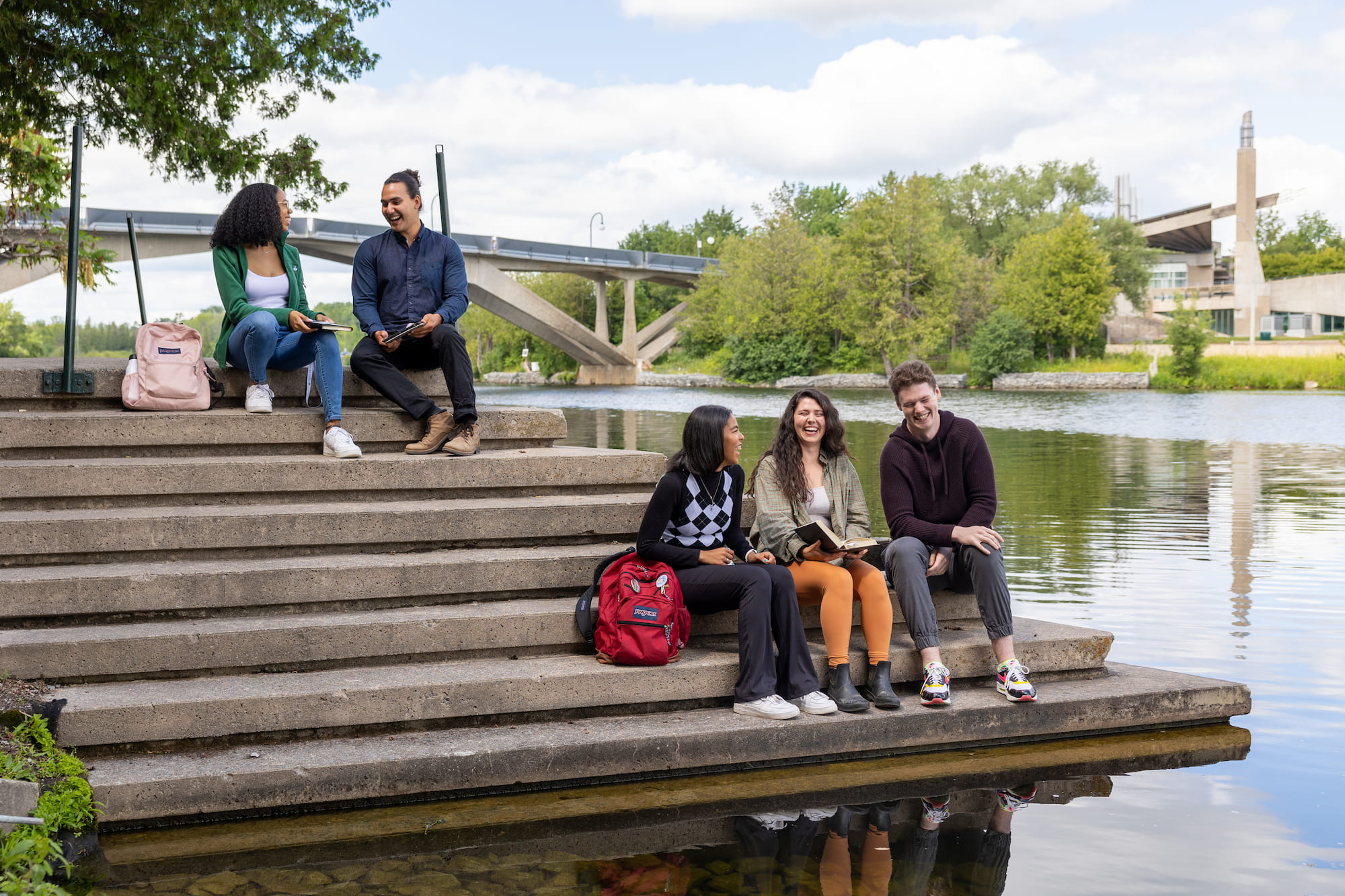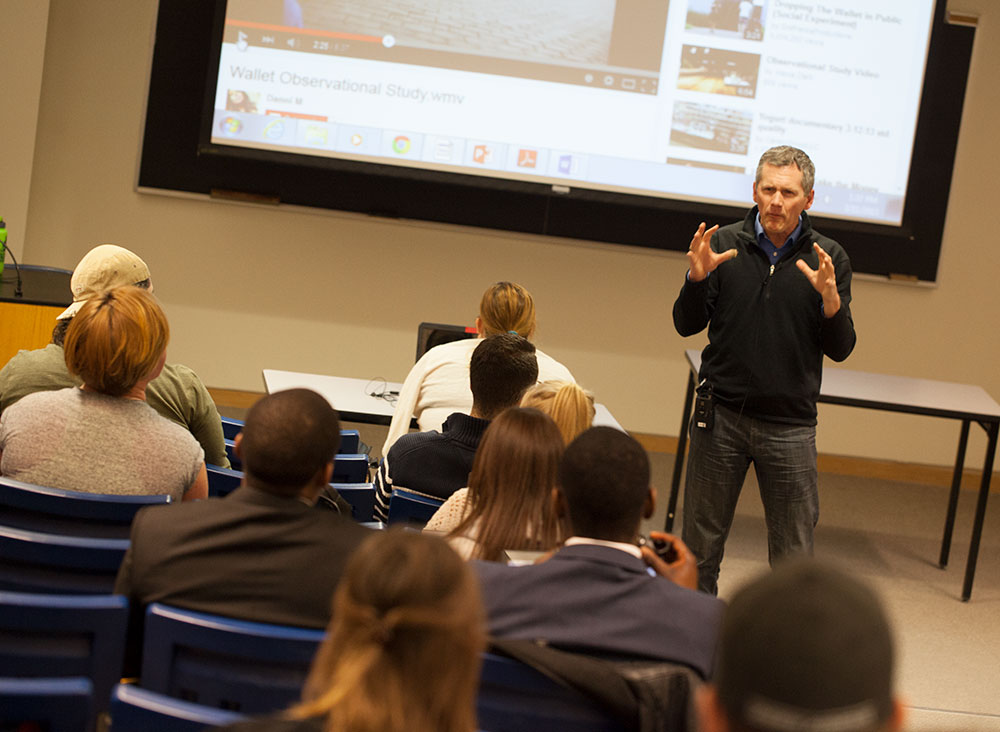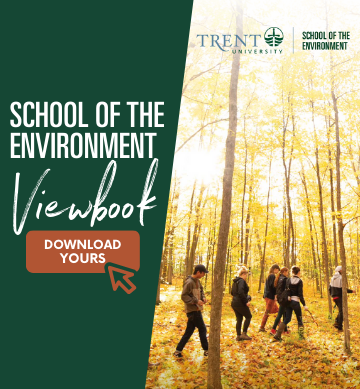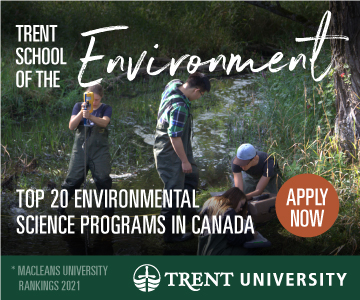Indigenous Environmental Studies/Science (Co-op Available)
Trent’s groundbreaking Indigenous Environmental Studies/Science (IESS) degree program, offered jointly with the School of the Environment, is the first program of its kind in North America. This degree focuses on the interaction and collaboration of Indigenous Knowledge Systems and Euro-centric Knowledge Systems, and offers two study pathways. Choose to complete a Bachelor of Arts (Studies) and gain an understanding of the social, cultural, and human experiences with the environment through an Indigenous perspective. Choose the Bachelor of Science (Sciences) pathway and gain the theory and skills to analyze the natural world, from Indigenous and Western perspectives. With guidance and support from leading Indigenous and non-Indigenous faculty, Elders, guest speakers, and scholars, you’ll learn to apply critical, creative and innovative thinking to address climate change, sustainability, health, food security, and other complex issues affecting Indigenous and all peoples around the world.
Accelerated Masters
Fast-track your education, by earning your M.Sc. in Environmental & Life Sciences in only 12-16 months after graduating from your honours B.Sc.
Degrees Offered:
- B.A.
- B.A. (Honours)
- B.Sc.
- B.Sc. (Honours)
- B.A. Co-op (Peterborough Only)
Locations:
- Peterborough
Resume Boosters:
- Gain 12 months of paid work experience across three work terms as part of the four-year co-op stream (B.A. pathway only), with student placements ranging from environmental planning and community education to research and policy analysis
- Apply your knowledge to a community-based research project assisting a local or national organization, including Curve Lake First Nation Band Council, Chiefs of Ontario, The Ayalik Fund, Inuit Tapiriit Kanatami, or Ontario Public Interest Research Group (OPIRG)
- Volunteer with the Trent Aboriginal Cultural Knowledge and Science youth outreach program through their in-school or summer camp programming

"Students are encouraged to open their hearts and understand the world from a greater perspective."
Career Paths:
Featured
Natural Resources Planner
Natural and applied science policy researchers, consultants and program officers conduct research, prepare reports, provide consultation and advice and administer programs in a variety of areas related to the natural and applied sciences. They are employed by federal, provincial and municipal governments, computer and office furniture manufacturers, educational institutions, research organizations, consulting firms, environmental and conservation organizations, or they may be self-employed.
Career Opportunities
- Indigenous or non-Indigenous Government Policy Specialist
- Environmental Educator
- Natural Resource Manager or Researcher
- Indigenous Corporate Liaison Officer
- Environmental Lawyer
- Consultant
- Teacher
- Indigenous/ Private Sector Liaison
- Park Warden
- Environmental Activist
Popular Courses:
- Foundations in Indigenous Environmental Studies and Sciences
- Indigenous Knowledge Systems and the Environment
- Indigenous Peoples Health and Environment
- Canada: The Land
- Sustainable Indigenous Communities
- Indigenous Food Systems

Admission Requirements
Ontario Secondary School Requirements:
- Ontario Secondary School Diploma (OSSD)
- A minimum of six Grade 12 4U or 4M courses, including program specific prerequisites
Program Requirements:
- A minimum 70% overall final average
- ENG 4U with a minimum of 60%
Co-op Requirements:
- A minimum 80% overall final average
- ENG 4U with a minimum of 60%
Discover Ontario's
#1 Undergrad University
Where award-winning architecture meets state-of-the-art research facilities and dynamic student spaces.
Visit TrentReady to Take the Next Step?
Tell us more about yourself and we’ll tell you all the reasons you belong at Trent.
Stay in Touch


